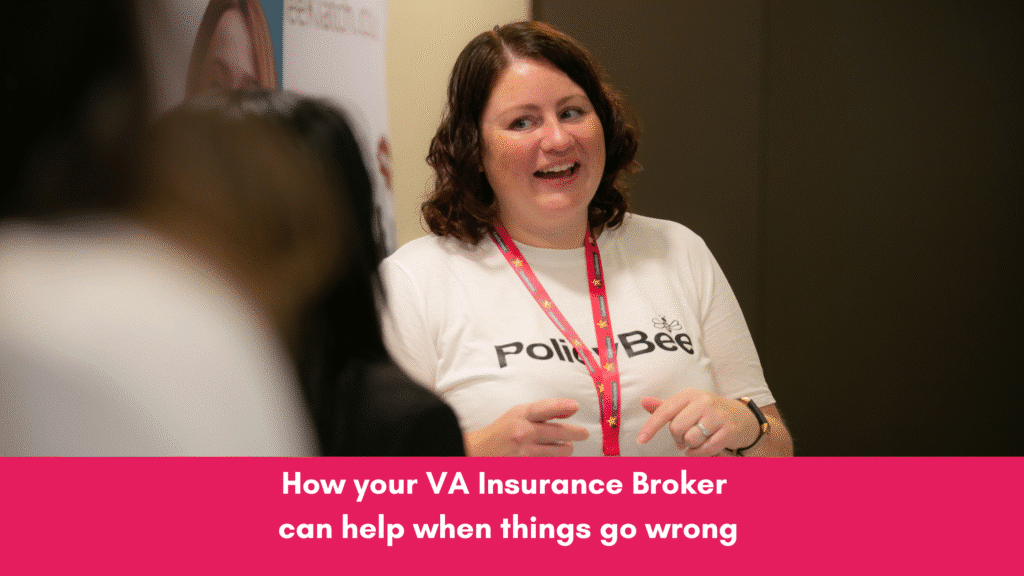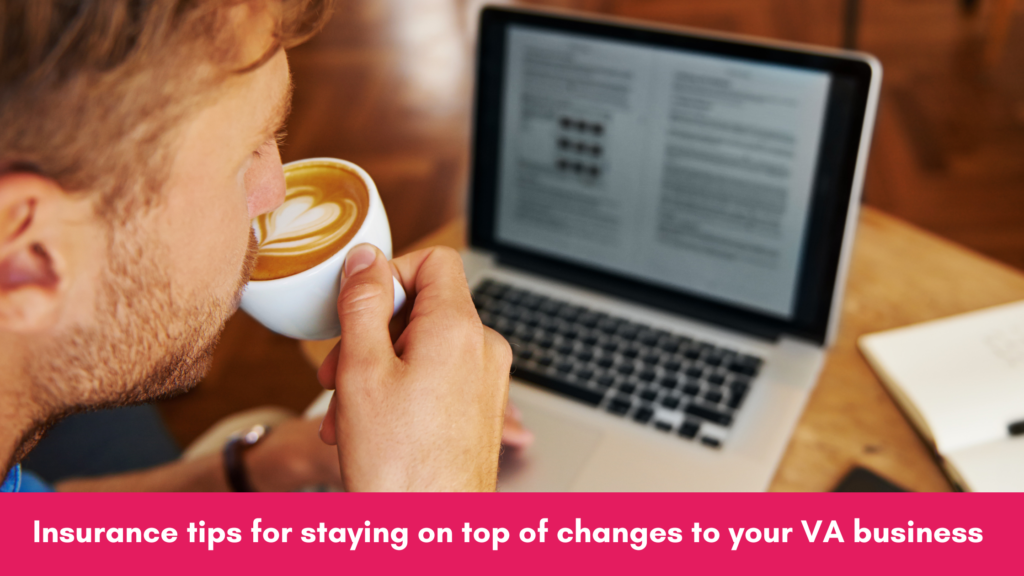How Your VA Insurance Broker Can Help When Things Go Wrong Guest Blog by PolicyBee
- 0 comments
- by Amanda Johnson

There’s no doubt a virtual assistant’s business insurance policy is a useful thing to have. It’s your safety net should things start to go south between you and a client.
Having spent good money on business insurance though, you expect it to do its job. If something goes wrong and you have to claim, your policy should kick in and pay up. No questions asked.
Except questions are always asked, and fairly awkward ones at that. So it’s a good thing you already have an insurance expert on your side who can help you: your broker.
Here’s how.
Reading the early signs
S ome barbed criticisms , a recurring complaint about your work, refusal to pay your invoice… enough to ruffle a few feathers, but maybe not enough to prompt you to pick up the phone to your insurance broker.
Except that’s exactly what you should do. Keeping your insurer in the loop from the moment there’s a problem between you and your client – no matter how trivial or small – means they have an early record of the dispute, which can only help your case.
A quick chat with your broker is usually enough for this to happen. It won’t affect the cost of your insurance and it’ll put you on the right footing with your insurer should things escalate between you and your client.
Choosing your words wisely
Say things do take a turn for the worse. Before you know it, you’re dealing with one (or more) allegations of wrongdoing which could, ultimately, lead to a claim. What then? How do you respond?
At this stage, what you don’t say to your client is just as important as what you do say. Your insurance broker can help you with this.
For example, they can advise on how to keep correspondence between you and your client neutral, so you don’t unintentionally aggravate the situation or admit liability. Even if you think your client is right to point the finger, admitting you’re to blame would prejudice your insurer’s position from the get-go, making it more difficult for them to fight your corner.
And don’t let on to your client that you have insurance, especially in the early stages. You might not know straight away that you’ll definitely be covered. So sit tight and let your broker do the talking. Besides, finding out you have the financial muscle of an insurer behind you might mean a couple more zeros get added to your alleged costs.
Time is of the essence
The moment a stiffly-worded letter from your client’s solicitor comes through your door is bound to be a scary one. Everyone reacts differently to bad news, and the last thing you want is to respond in the heat of the moment, only to regret it later.
Take matters into your own hands (by finding your own solicitor, for example) and you could end up invalidating your insurance. Bury your head in the sand, and you run the risk of your insurer turning down your claim on the grounds of late notification.
So, before you do anything else, call your broker as soon as possible so they can get the ball rolling on your claim. Being insurance experts, they know the process inside and out, and they know what to expect. They’ll decode any questions your insurer asks of you and make sure you give the right answers.
You’re not alone
Lastly, it’s worth remembering that while dealing with an insurance claim is never a picnic, you don’t have to suffer in silence.
Your broker is ready to fight your corner anytime you need them. They represent you, not the insurer, and it’s their job to make sure your interests are covered.
If things aren’t going well, they’ll make sure the right information is given at every stage and, if needs be, go head-to-head with your insurer to argue your claim. Although it helps when – like us – they only work with progressive insurers that generally see things their way.
In other words, a good broker is a business-saving tool worth having around. They have the expertise and the technical know-how to help you when things go wrong, and at no extra cost to you (beyond what you’ve already paid for your insurance). Who can argue with that?
Want to read more on the claims process? Head over to our blog about how business insurance claims work. Or you can take a look at our insurance for virtual assistants. Got questions? Call us for a chat on 0345 222 5370.








